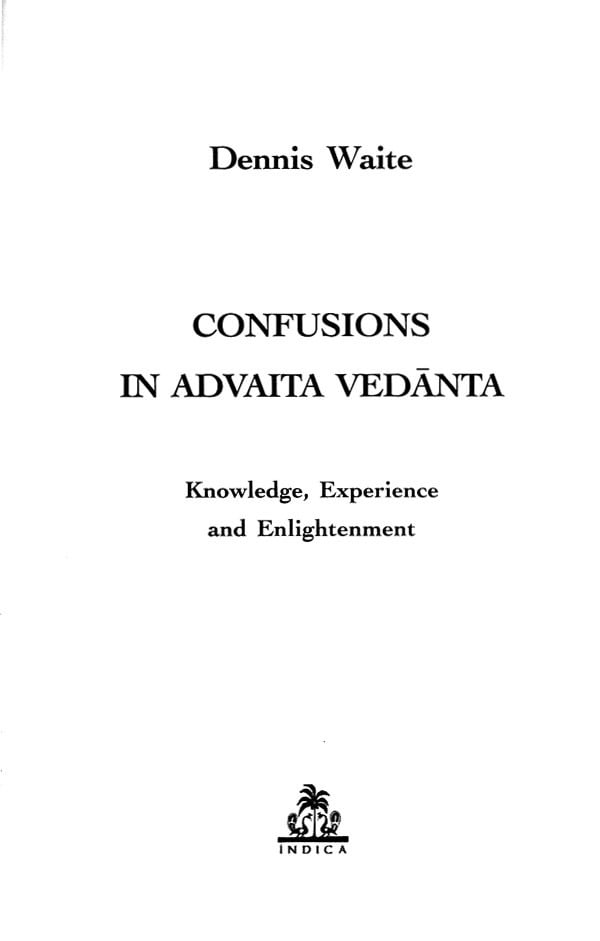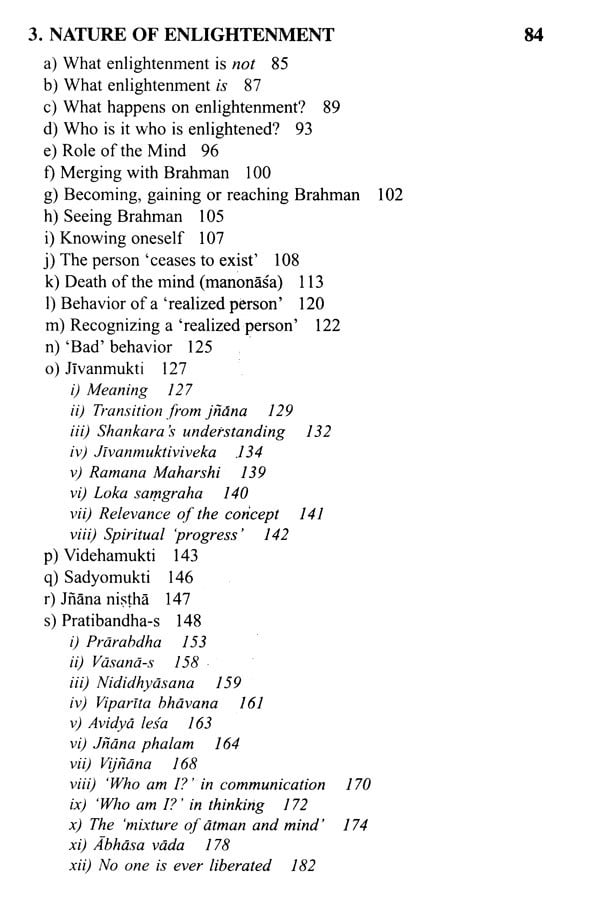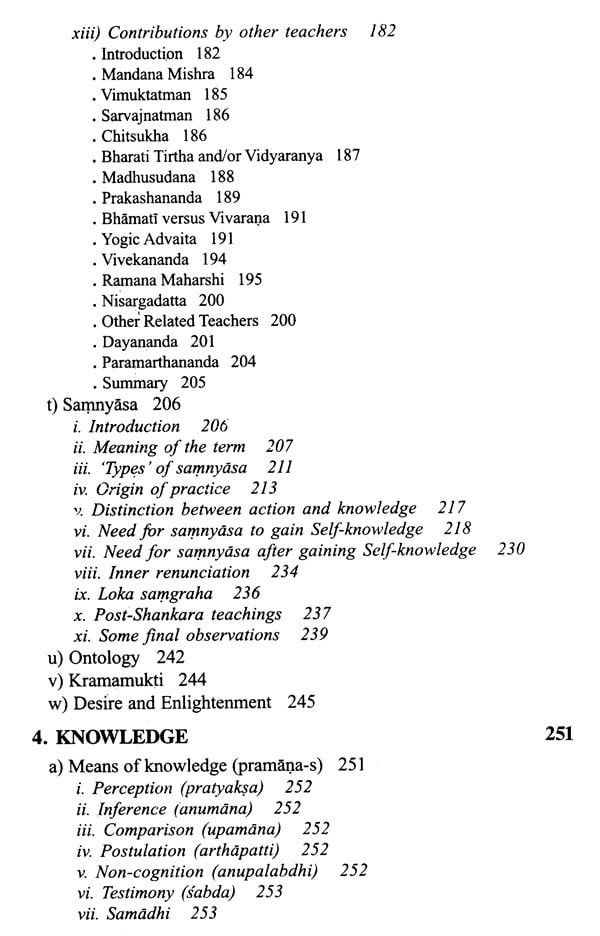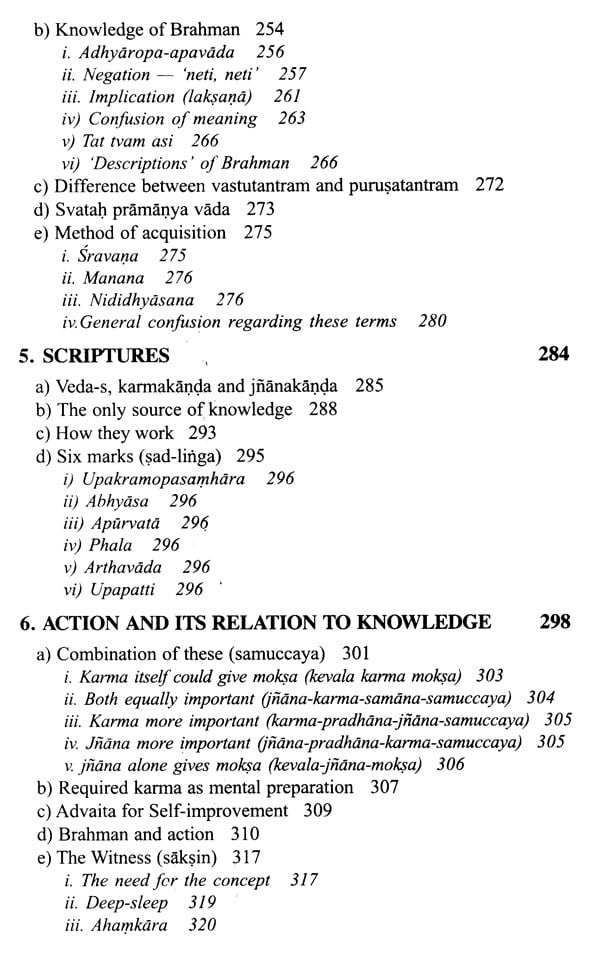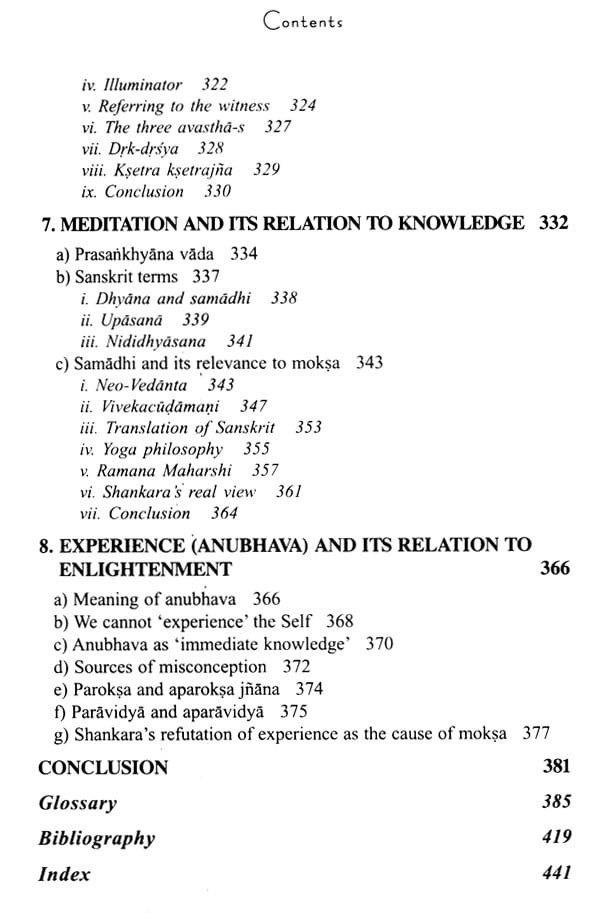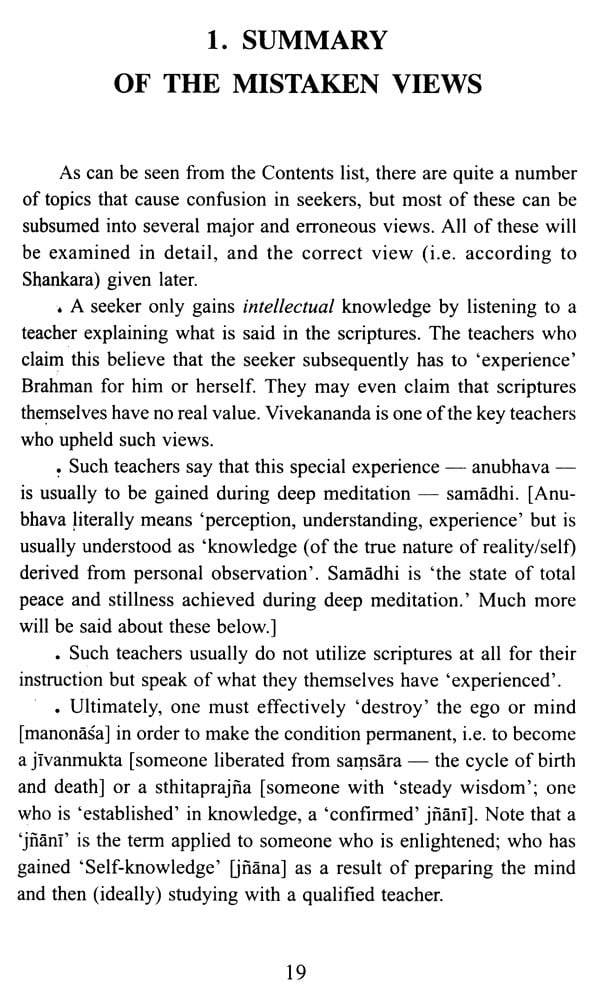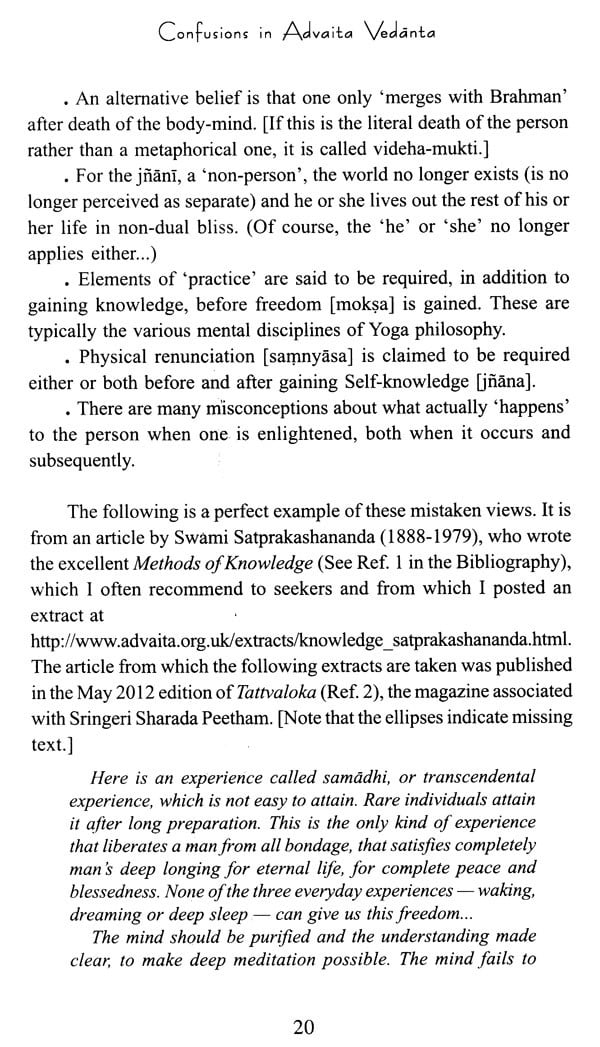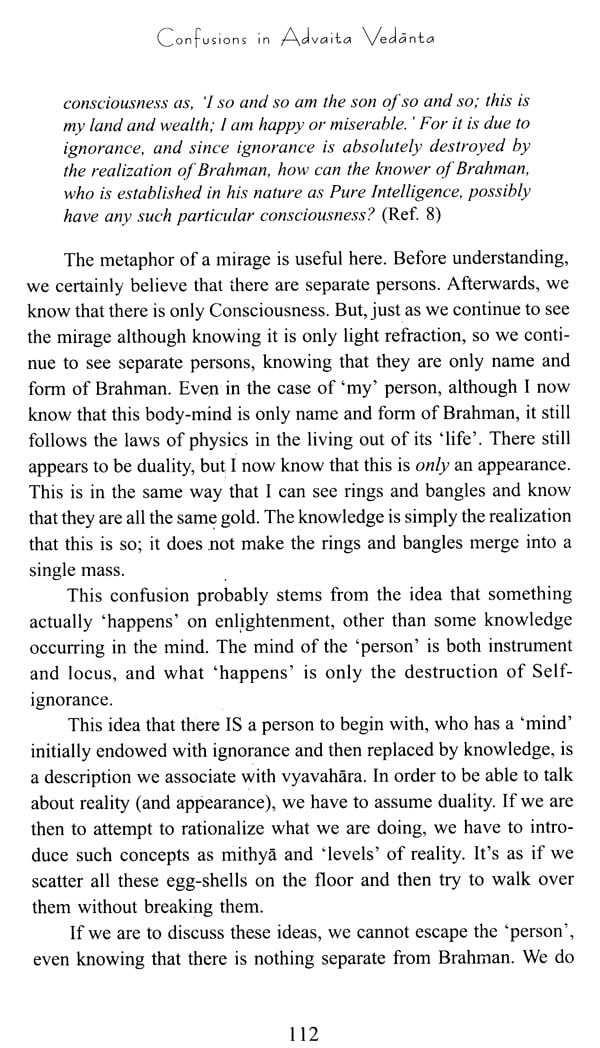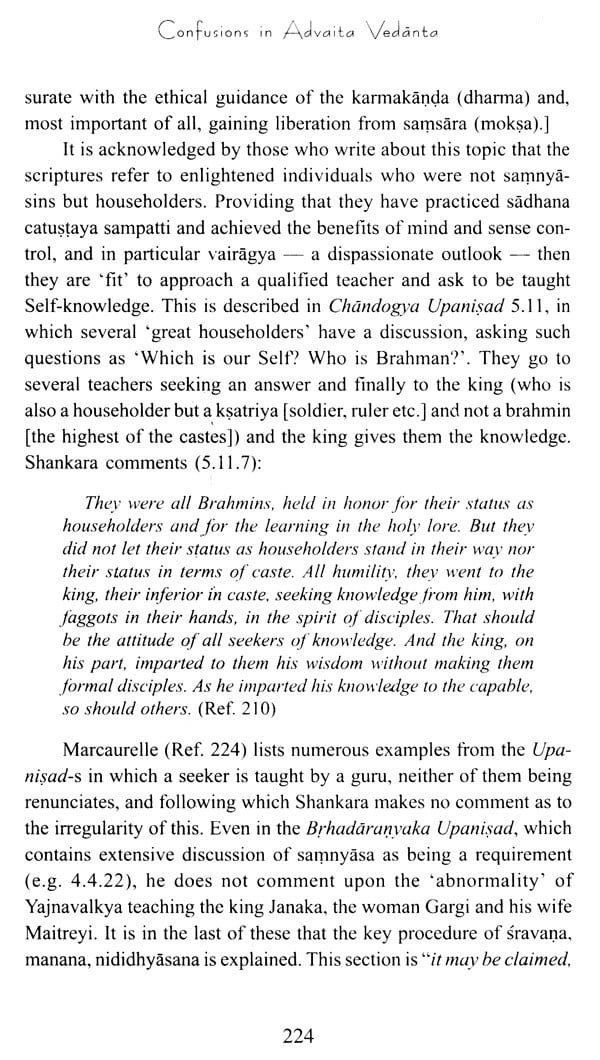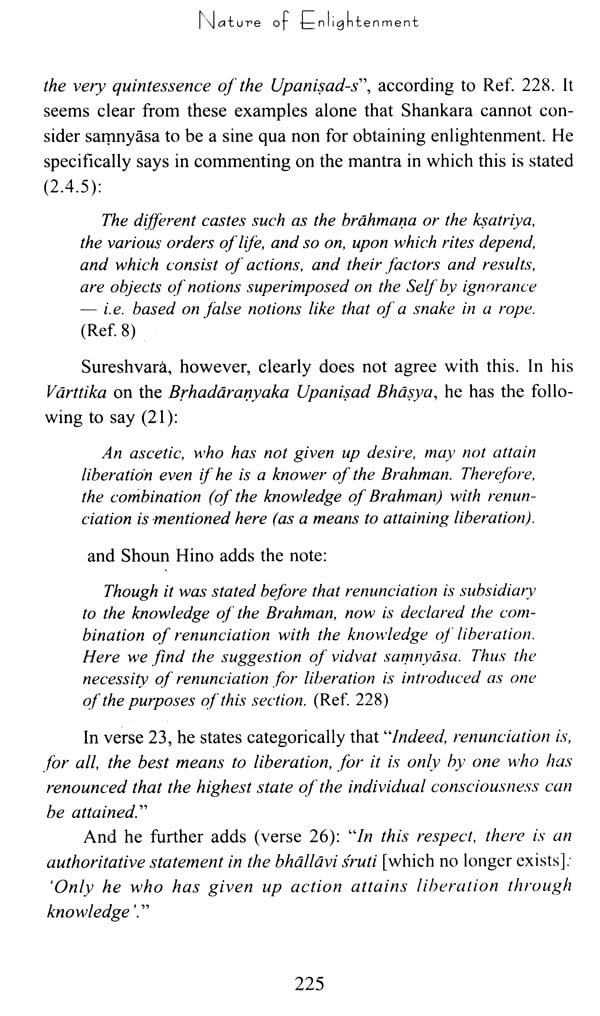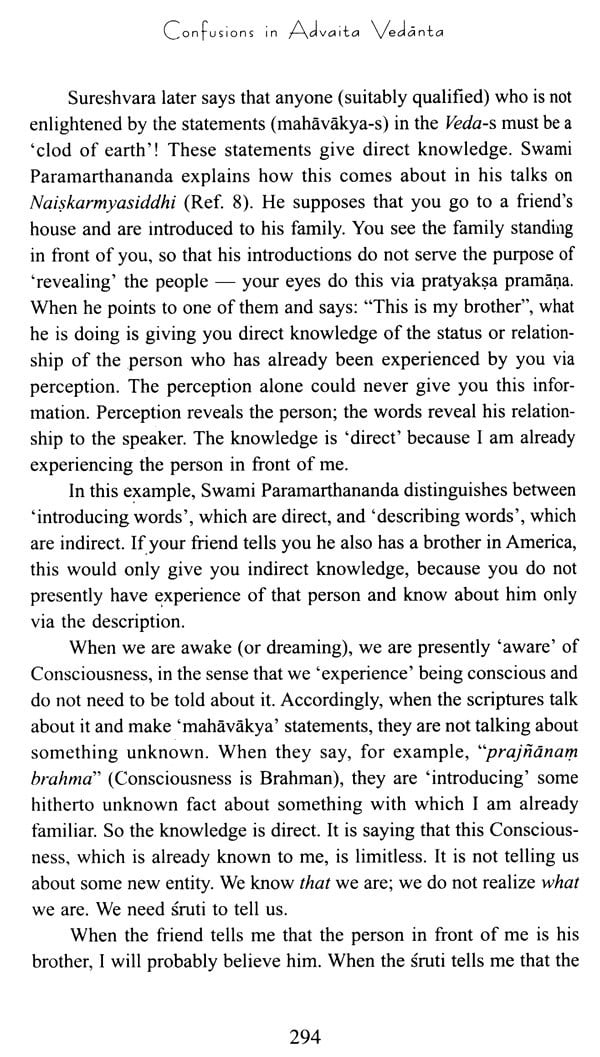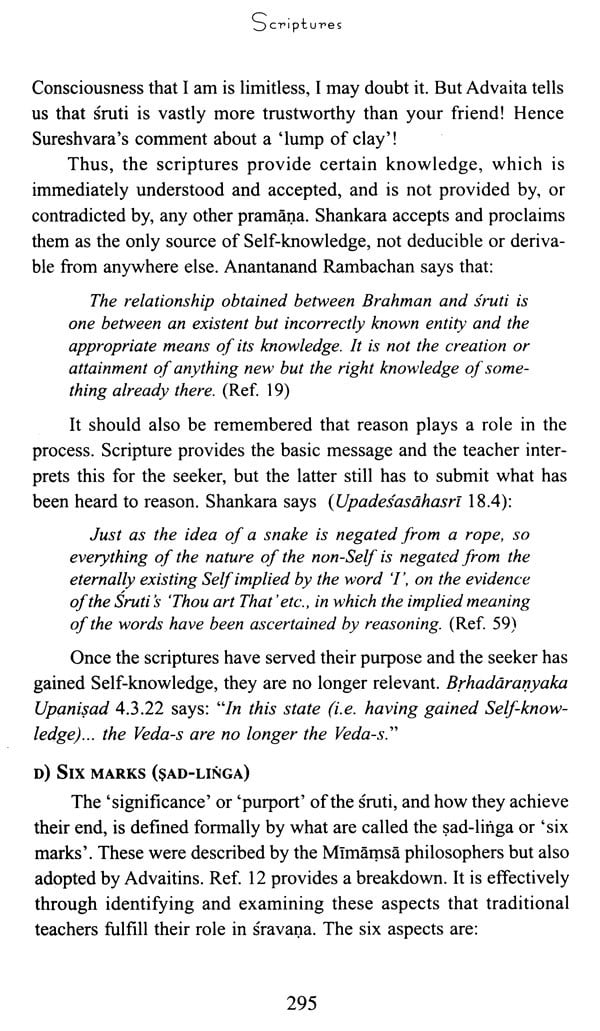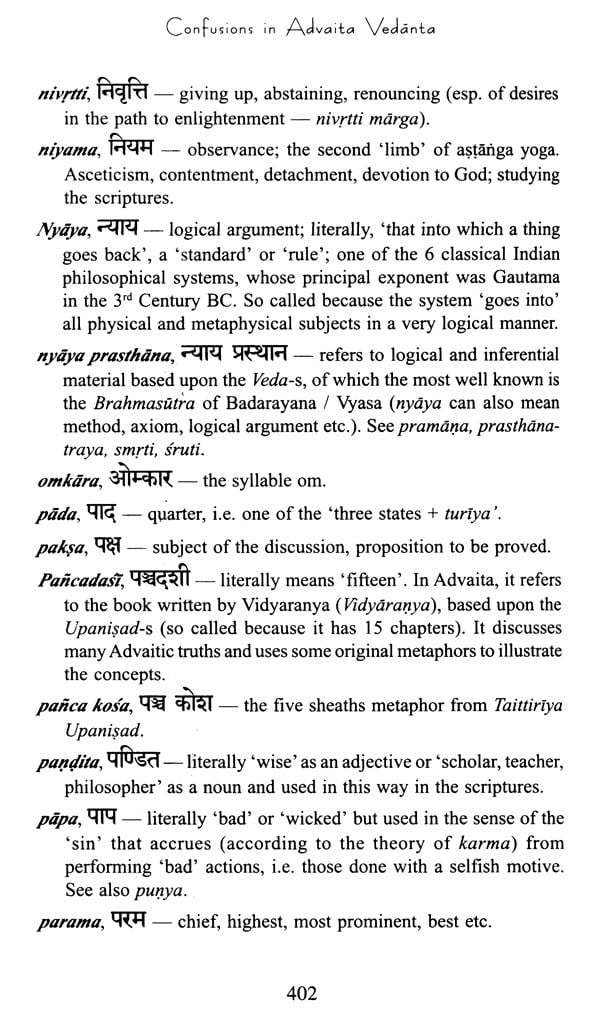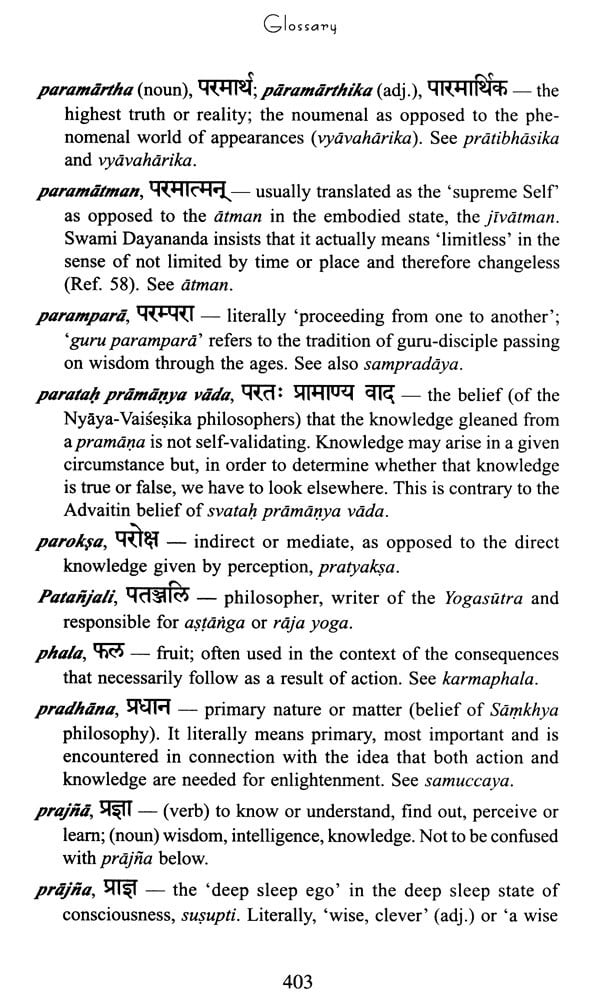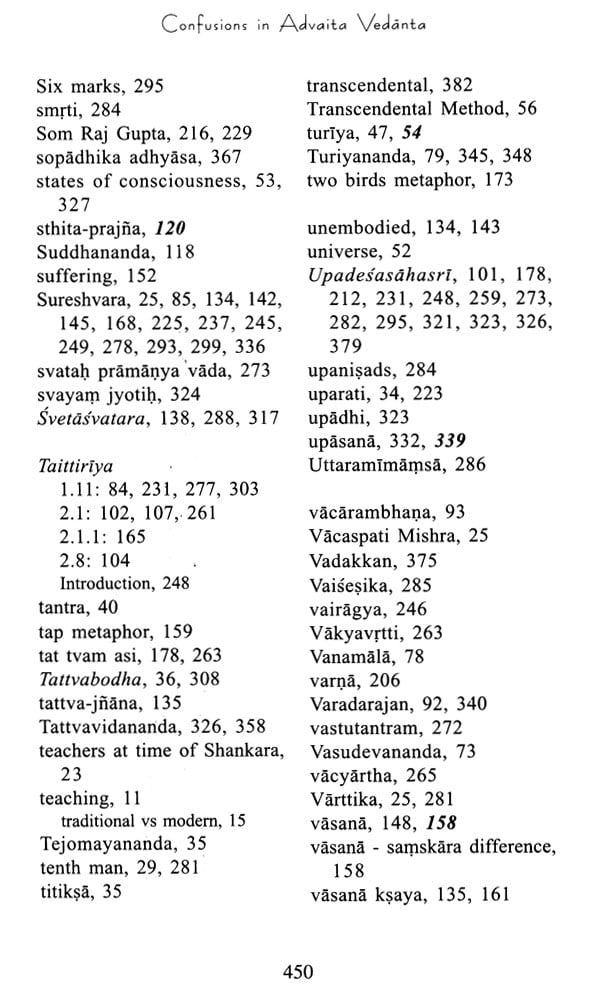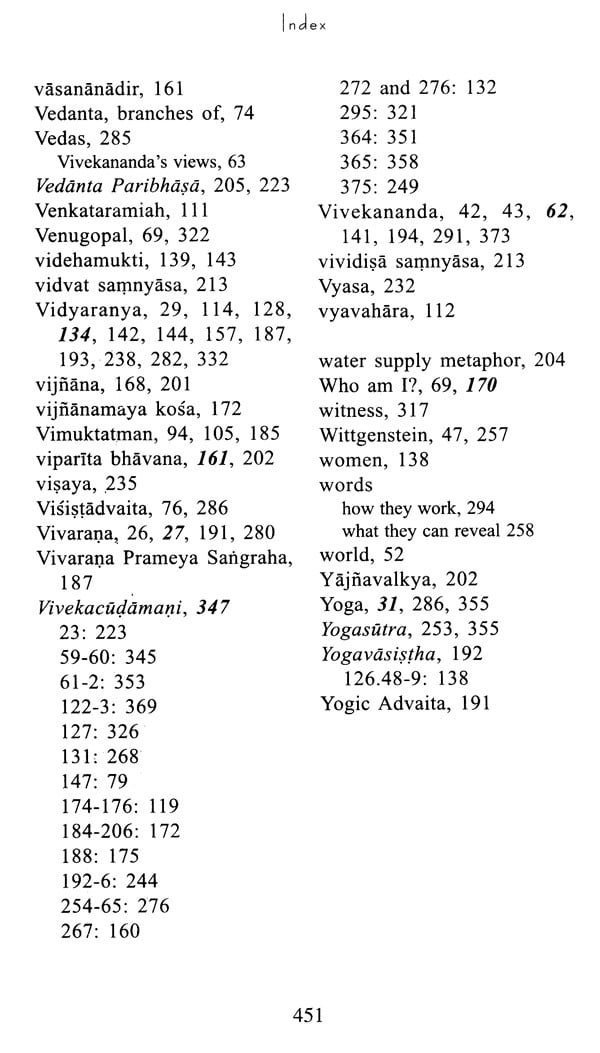
Confusions in Advaita Vedanta- Knowledge, Experience and Enlightenment
Book Specification
| Item Code: | UAS288 |
| Author: | Dennis Waite |
| Publisher: | Indica Books, Varanasi |
| Language: | English |
| Edition: | 2022 |
| ISBN: | 9789381120286 |
| Pages: | 452 |
| Cover: | HARDCOVER |
| Other Details | 10.00 X 7.00 inch |
| Weight | 750 gm |
Book Description
He has maintained a website at advaita.org.uk for the past 20 years, which contains hundreds of articles and details of resources, books and teachers. Advaita Vision' was begun 10 years ago at advaita-vision.org to host more general discussions, together with over 500 questions and answers, which led to the book 'Answers... to the Difficult Questions in 2019. It was primarily through these that he was able to discover those areas of the teaching that cause the greatest confusion amongst seekers and this, in turn, was the prompt to write this book.
Primarily, seekers want to know what they have to do to become enlightened. There are many books that purport to tell them but conflicting explanations are found. Even revered teachers may appear to contradict each other and the scriptural text and comments from one translator may not tally with those from another. Ideally one would only seek to learn Advaita from a qualified teacher in the approved, traditional manner. If that is not possible, and one wants to read and learn on one's own, what is one to do? In this book, Dennis Waite looks specifically at the topics of action. knowledge and experience and turns to Shankara to explain their relevance to our search for enlightenment and to counter the many, erroneous ideas that can impede the seeker's progress.
The content and style throughout are aimed to be relevant both to the beginner (so that he or she may avoid the pitfalls) and to the advanced seeker (60 that any remaining confusions may be resolved). It will also appeal to the academic student aiming to investigate the related topics and clarify the issues that have been the subject of debate over the centuries.
I had also originally intended that this book would cover all of the topics I have found to trigger confusion amongst students of Advaita Vedanta. But, as the explanations relating to knowledge, ac- tion and experience continued to expand, I realized this would turn into a mammoth tome that would take a long time to reach interested readers. The work will be in three volumes. The first volume focuses on enlightenment: what it is, how it is achieved, and what are its results. In particular, it will address the topics of knowledge and experience and their relative value in bringing about enlighten ment. The second volume will deal with the key topic of ignorance, and the third will address the world, creation and causality. Other topics, such as grace, free will, Ishvara etc. will also be covered.
One of the things you will notice time and again is that I diffe rentiate between traditional and modern teaching. By 'modern' I mean the satsang style of teaching, which includes Neo-Advaita. By 'traditional' I mean qualified teachers who belong to a sampradaya [the tradition or established doctrine of teaching from master to pupil through the ages.
**Contents and Sample Pages**
